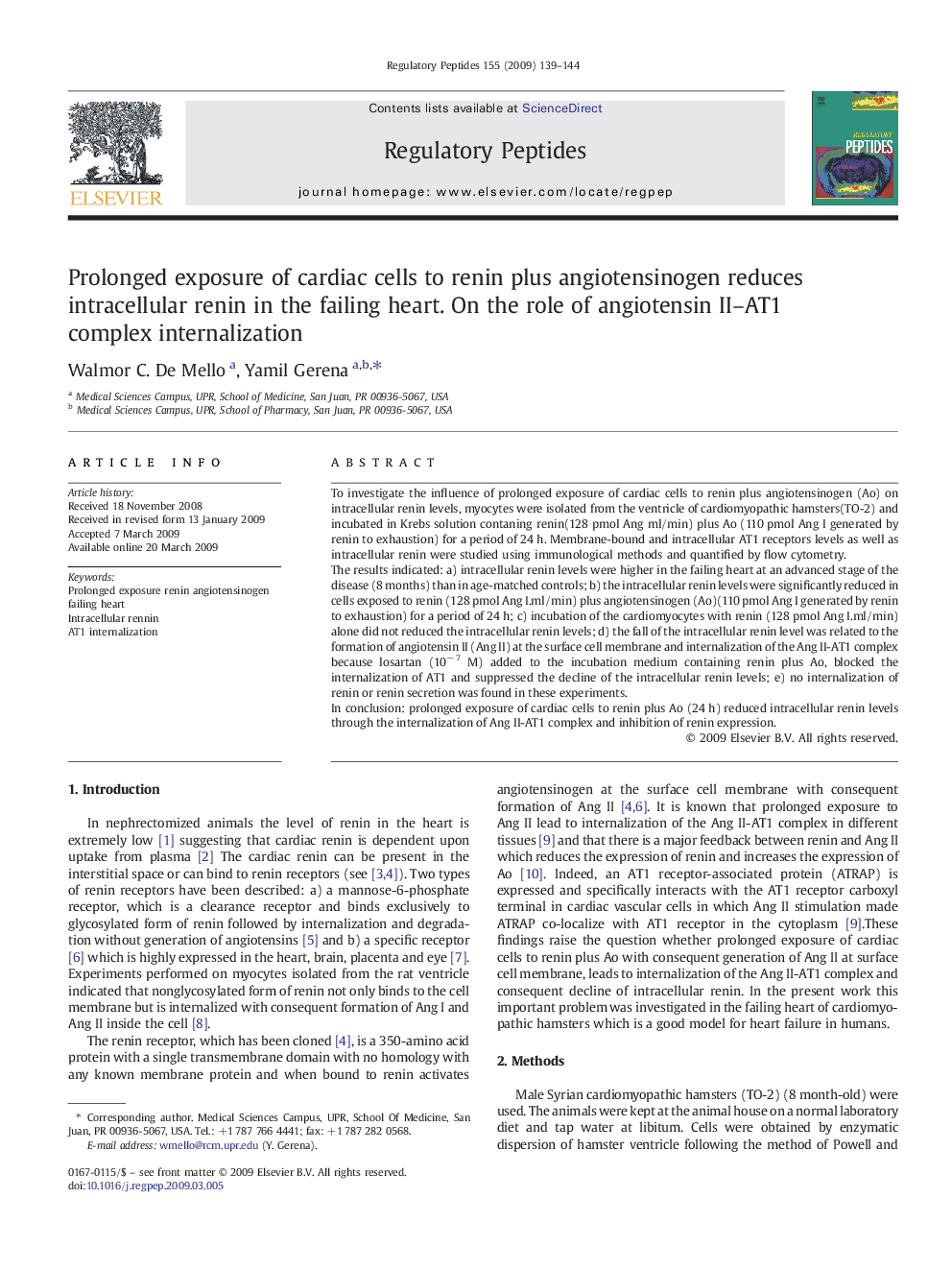| Article ID | Journal | Published Year | Pages | File Type |
|---|---|---|---|---|
| 2023102 | Regulatory Peptides | 2009 | 6 Pages |
To investigate the influence of prolonged exposure of cardiac cells to renin plus angiotensinogen (Ao) on intracellular renin levels, myocytes were isolated from the ventricle of cardiomyopathic hamsters(TO-2) and incubated in Krebs solution contaning renin(128 pmol Ang ml/min) plus Ao (110 pmol Ang I generated by renin to exhaustion) for a period of 24 h. Membrane-bound and intracellular AT1 receptors levels as well as intracellular renin were studied using immunological methods and quantified by flow cytometry.The results indicated: a) intracellular renin levels were higher in the failing heart at an advanced stage of the disease (8 months) than in age-matched controls; b) the intracellular renin levels were significantly reduced in cells exposed to renin (128 pmol Ang I.ml/min) plus angiotensinogen (Ao)(110 pmol Ang I generated by renin to exhaustion) for a period of 24 h; c) incubation of the cardiomyocytes with renin (128 pmol Ang I.ml/min) alone did not reduced the intracellular renin levels; d) the fall of the intracellular renin level was related to the formation of angiotensin II (Ang II) at the surface cell membrane and internalization of the Ang II-AT1 complex because losartan (10− 7 M) added to the incubation medium containing renin plus Ao, blocked the internalization of AT1 and suppressed the decline of the intracellular renin levels; e) no internalization of renin or renin secretion was found in these experiments.In conclusion: prolonged exposure of cardiac cells to renin plus Ao (24 h) reduced intracellular renin levels through the internalization of Ang II-AT1 complex and inhibition of renin expression.
